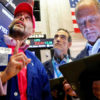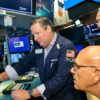
More people see ‘value’ and ‘quality’ in a brand’s politics — not products — as Facebook and other companies are learning
Consumer brands across all categories are now in the spotlight as to where they stand on social issues. First, the pandemic hit, and brands scrambled to strike the right tone in these “unprecedented times.” Then, just as businesses were starting to get back to their regularly scheduled marketing, the wave of long-overdue protests and conversations began in support of Black Lives Matter.
Every brand has faced critical decisions: about the role they should play, and the steps they need to take. Brands that never set out to “stand for” something are finding that remaining silent makes just as much of a statement as speaking out, and that speaking out is not nearly enough. Consumers expect transparency, accountability, and action.
This past month, we’ve seen this new set of consumer demands play out across Instagram and other social channels, as brands have responded in various ways to the movement against racial injustice. Some brands have struck the right tone, communicating with a combination of humility and action. Others simply posted generic “solidarity” messages with no tangible actions attached, and were met with demands for more. Brands that are hash-tagging without reflecting on their own hiring practices and the ways in which they’ve contributed to racial inequality are hearing from justifiably angry and disappointed consumers.
Even Facebook FB, +4.61% , a company which has stubbornly resisted any acknowledgment of the powerful role it plays in the cultural and political landscape, has been forced to do a bit of reckoning. A new campaign, Stop the Hate for Profit, called on businesses to halt all advertising on Facebook for the month of July, in response to Facebook’s refusal to address racism, the incitement of violence and hate speech on its platform. Businesses including Adidas ADS, +0.64% , Best Buy BBY, +0.09% , Coca-Cola KO, +0.31% , and Unilever UL, +0.34% UN, +0.37% have all signed on, and Facebook is finally attaching labels that give more context to certain posts. But consumers, and businesses, are calling for the company to do a lot more.
Read: The Facebook ad boycott could pay off for companies more than advertising on Facebook
When did consumers get so demanding, expecting companies to both deliver value and align with their values? In recent years, starting with millennials and brought into even greater focus by Gen Z, there’s been a much larger emphasis on the need for brands to engage in social responsibility. Certainly millennials and Gen Z deserve credit for spearheading a heightened awareness of social and environmental issues, and asking brands to do their part. But it’s not just young people: all consumers now have an unprecedented amount of control, with more information, choices, and power than ever before.
People can buy products directly from brands, from the palm of their hands. If they’re unhappy about something, they can tweet about it for the world to see. Consumers no longer have to rely on traditional gatekeepers like retailers and TV networks to deliver products and information. Because of this increased power, they are demanding more. In addition to great service and real value, people want to believe in the companies they are supporting and trust that their values are aligned.
Yet while connection to a social mission may feel like a shortcut to building loyalty and community, it’s not as easy as writing a check and calling it a day. It’s certainly better for a corporation to donate to a charitable organization than not at all. But from a brand-building or even cause-building perspective, the “x percent of profits” approach can feel shallow. Many times the chosen nonprofit has little connection to the company itself, and the brand does little to educate consumers about the cause or inspire them to get involved. A cynical view would be that these brands are doing the bare minimum: minimum amount donated, minimum effort. These programs often don’t feel that thoughtful, and can sometimes feel tacked on, rather than inherent to the brand’s purpose and story.
Purpose and commitment
Forward-looking brands are finding creative ways to align themselves with causes that feel far more integrated and purposeful, such as the one-for-one model of Toms Shoes, Warby Parker, and Bombas, a sock brand that was started after its founders learned that socks are the number one most requested item in homeless shelters. There’s a deeper commitment to sustainability, in brands such as Allbirds that makes shoes from renewable materials such as wool and sugar, or Cleancult, a cleaning supply company with a refill model that eliminates single-use plastic, and an ingredient list that reads more like a recipe than dish soap. This approach to a social mission is demonstrated in the evolution from “cause marketing” to “corporate social responsibility” (CSR), in which a company’s social consciousness is built into its business model.
Companies that actively engage in CSR find ways to make a positive impact (and avoid a negative one) in their everyday practices. Rather than a short-lived marketing campaign, it’s an inherent part of how they operate, and core to their brand. As with all successful, long-term brand building, it’s not a layer that sits on top, but an idea embedded within the organization. That’s one way to think about successfully incorporating social good into a brand’s story: if it’s a tiny appendage that can easily be lopped off with no effect on the overall brand identity, you probably haven’t gone deep enough for today’s consumer.
“ People’s nose for hypocrisy is at an all-time high. ”
The engaged consumer absolutely and rightly demands a deeper commitment than just running a clever ad campaign. Successful brands today need to embody their commitment to social good in how they make products, in the programs they develop, in how they treat their team. People’s nose for hypocrisy is at an all-time high. Brands have been critiqued for featuring different body types in their ads to stand for inclusivity, but not offering sizes above a women’s 12. Brands that claim to stand for transparency are then revealed to be treating their employees unfairly.
It is not enough to talk to the talk — brands need to behave, internally and externally, in ways that reflect the values they claim to stand for. Public expectations have only increased in recent times of crisis and protest, starting with the pandemic and leading to widespread calls for racial justice resulting from centuries of discrimination and violence.
But that doesn’t mean that brands should remain silent on issues of social responsibility for fear of being “called out.” Instead, brands need to genuinely seek out ways they can do better, not just communicate better. It’s fine for brands to take credit when they’re doing good work, as long as their actions outweigh their words and not the other way around. No company is perfect, but brands will fare far better by openly acknowledging that they are taking steps on a journey, and approaching important social and environmental topics with humility and humanity.
When done right, consumers are not just aware of the values of their favorite brands; they’re inspired by them. This bolsters a feeling of community, because people have something to rally behind and get excited about. When Patagonia began refusing to sell its fleece vests to corporations that don’t prioritize the planet, it may have disappointed some Wall Street firms, but it augmented the love of its environmentally conscious audience, who felt even more connected to its values, and therefore more loyal to the brand. When people know what a brand stands for, and they agree with it, that creates an intimate bond. Communities form not around a logo, or a clever social media strategy, but a shared set of passions or ideals.
Emily Heyward is cofounder and chief brand officer at Red Antler, a leading brand company for startups and new ventures. She is the author of Obsessed: Building a Brand People Love from Day One (Portfolio, 2020).
Read: Here are the major brands that have pulled ads from Facebook
More: Here are tech companies’ plans for increasing diversity amid protests over racial inequality

















